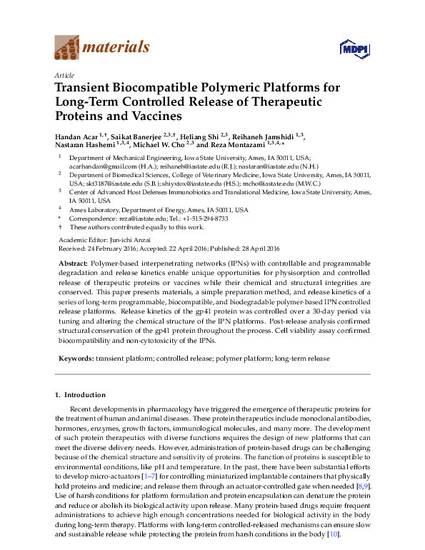
Polymer-based interpenetrating networks (IPNs) with controllable and programmable degradation and release kinetics enable unique opportunities for physisorption and controlled release of therapeutic proteins or vaccines while their chemical and structural integrities are conserved. This paper presents materials, a simple preparation method, and release kinetics of a series of long-term programmable, biocompatible, and biodegradable polymer-based IPN controlled release platforms. Release kinetics of the gp41 protein was controlled over a 30-day period via tuning and altering the chemical structure of the IPN platforms. Post-release analysis confirmed structural conservation of the gp41 protein throughout the process. Cell viability assay confirmed biocompatibility and non-cytotoxicity of the IPNs.
Available at: http://works.bepress.com/nastaran_hashemi/25/

This is an article from Materials 9 (2016): 321, doi: 10.3390/ma9050321. Posted with permission.